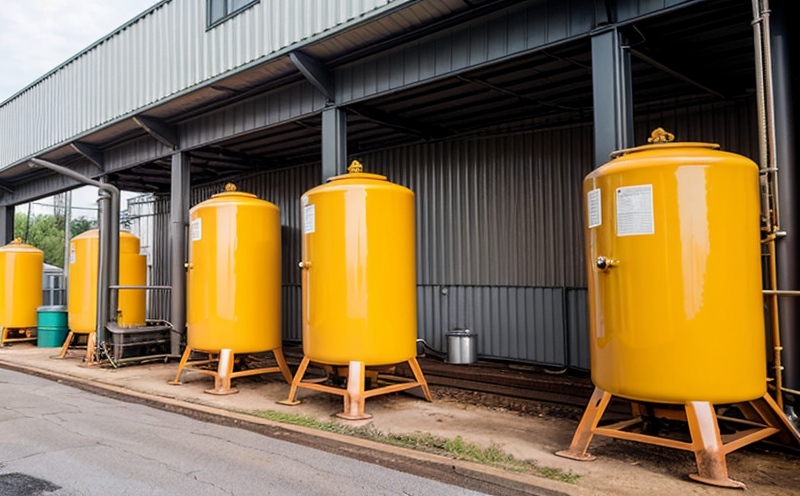ASTM D638 Plastic Tensile Property Compliance Testing
The ASTM D638 standard is one of the most widely recognized and respected standards in plastic tensile property testing. This test method provides a detailed approach to measuring the tensile properties of plastics, which are essential for ensuring product performance and compliance with industry regulations.
ASTM D638 involves subjecting samples of plastic materials to uniaxial tension until failure occurs. The key parameters measured include tensile strength, yield strength, elongation at break, modulus of elasticity, and toughness. These properties are critical for assessing the mechanical integrity of plastics used in a wide range of industrial applications.
The standard is particularly relevant for quality assurance departments as it helps to ensure that plastic products meet specified performance criteria. Compliance with ASTM D638 can also be crucial for regulatory compliance, especially when dealing with materials intended for use in medical devices or construction.
For R&D engineers, this test method offers a robust framework for developing new formulations and optimizing existing materials. By adhering to the strict procedures outlined in ASTM D638, they can ensure that their innovations meet both internal quality standards and external regulatory requirements.
The process of conducting ASTM D638 tests involves several key steps. Specimens are cut from plastic samples according to the specified dimensions. These specimens are then mounted in a tensile testing machine where they undergo controlled loading until failure. The entire procedure must be conducted under carefully controlled conditions, including temperature and humidity, to ensure accurate results.
The equipment used for ASTM D638 tests typically includes high-precision tensile testers capable of applying precise loads while recording strain data accurately. Advanced software allows for real-time analysis and interpretation of test results, providing immediate feedback on the mechanical properties of the plastic samples.
When interpreting the results from ASTM D638 testing, it is important to consider both quantitative measures such as tensile strength and qualitative factors like uniformity in fracture patterns or stress concentration areas. These insights can inform further development efforts aimed at improving product durability and reliability.
Compliance with ASTM D638 ensures that plastic products meet stringent quality standards set by industry leaders, which enhances customer confidence in the performance of these materials. This standard plays a vital role in maintaining consistent product quality across different manufacturing processes and geographical locations.
Eurolab Advantages
- State-of-the-Art Facilities: Eurolab boasts cutting-edge laboratories equipped with the latest technology to perform ASTM D638 tests accurately and efficiently.
- Experienced Technicians: Our team consists of highly skilled professionals who possess extensive experience in conducting various types of material testing, including ASTM D638.
- Comprehensive Reporting: Eurolab offers detailed reports that not only present the test results but also provide valuable insights into the performance characteristics of your plastic materials.
- Rapid Turnaround Times: We understand the importance of timely delivery of testing results, so our fast turnaround times ensure minimal disruption to your production schedules.
By choosing Eurolab for ASTM D638 plastic tensile property compliance testing, you gain access to a world-class facility staffed by experts dedicated to delivering reliable and accurate test results. Our commitment to excellence ensures that every sample receives the attention it deserves, leading to improved product quality and enhanced customer satisfaction.
Why Choose This Test
- Accurate Results: ASTM D638 provides a standardized method for measuring plastic tensile properties, ensuring consistent and reliable results across different laboratories.
- Industry Standard: Compliance with this standard is essential for many industries, particularly those regulated by government bodies like the FDA or EPA.
- Risk Reduction: By conducting ASTM D638 tests, manufacturers can identify potential weaknesses in their plastic products early on, minimizing costly recalls and reputational damage.
The ASTM D638 test is particularly beneficial for companies operating within highly regulated sectors such as pharmaceuticals or aerospace, where non-compliance could have severe consequences. It helps to maintain high standards of quality control throughout the manufacturing process, thereby reducing risks associated with defective products reaching consumers.
Furthermore, adherence to ASTM D638 demonstrates a company's commitment to excellence and reliability, which can significantly enhance its reputation among clients and stakeholders. In today’s competitive marketplace, having an unblemished record of compliance can be a deciding factor when it comes to winning contracts or securing new business opportunities.
Customer Impact and Satisfaction
- Better Product Quality: By ensuring that plastic materials meet the stringent requirements set out in ASTM D638, manufacturers can produce higher quality products that perform better under stress conditions.
- Improved Customer Trust: Demonstrating compliance with this widely recognized standard reassures customers about the integrity and reliability of your products.
- Enhanced Brand Reputation: Companies known for their adherence to rigorous testing protocols tend to attract more loyal customers who value quality above all else.
The results from ASTM D638 tests play a crucial role in shaping customer perceptions about the reliability and performance of plastic products. When presented with accurate, transparent reports showing compliance with this standard, potential buyers are likely to place their trust in your brand. This trust translates into increased sales volumes over time as satisfied customers become repeat purchasers or recommend your offerings to others.
Moreover, by consistently meeting these high standards during the development phase of new products, manufacturers can anticipate fewer issues later down the line when those items reach end-users. Such proactive measures contribute significantly towards building long-term relationships based on mutual respect and shared goals.





